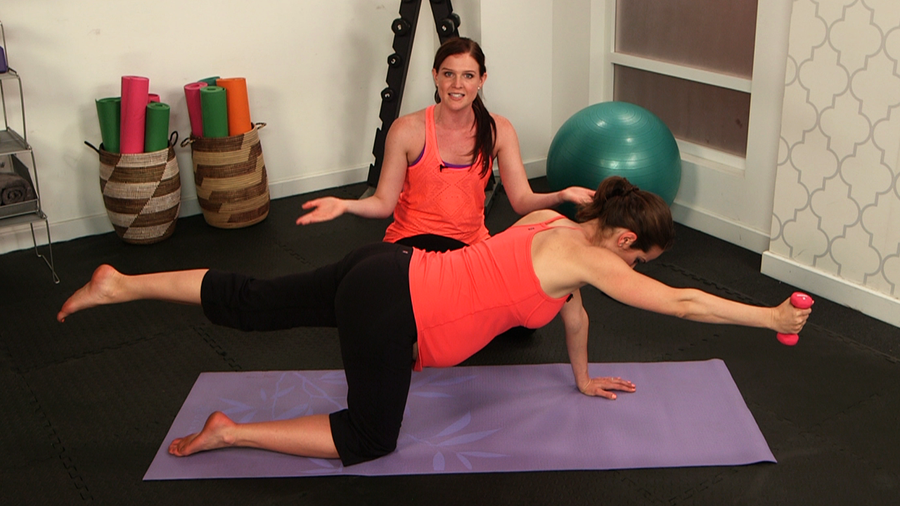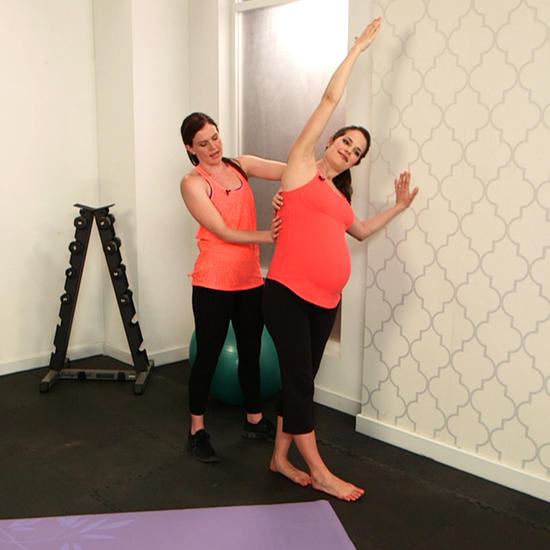Pilates and Pregnancy: Staying Strong and Centered
If you think Pilates and pregnancy cannot be used in the same sentence, think again!
While once deemed as the workout of only the elite (think: Reese Witherspoon, Sandra Bullock, Liv Tyler, Tiger Woods, Ian McKellen, and Megan Fox to name a few), Pilates has now successfully joined the fitness mainstream.
Over the years, it has now become an integral part of the daily routine of countless pregnant women.
What are some of the key benefits prenatal Pilates has to offer? We have listed some of the top benefits below so you can best understand why it has become a buzzword among many expectant mothers the world over.
It helps improve your breathing. During your Pilates sessions, you will learn and practice full and deep breathing. This method of breathing is aimed to help maintain the transverses abdominus connection as it pulls in the belly during the exercise. This can also result to good core support not just to the back but also to the rest of the body.
Specific prenatal Pilates exercises are also designed to enhance the flexibility of the intercostal muscles. These exercises will also make it a lot easier for the ribs to move once the baby occupies the extra space in the abdominal cavity and starts to grow. In addition, proper breathing can prove significantly helpful especially during labor and delivery.

It minimizes imbalances and helps maintain good posture. As your baby grows and develops, your body will adapt in order to make room. However, in some cases, the adjustment the body makes can end up compromising both its alignment and posture.
Fortunately, prenatal Pilates can help dramatically strengthen and stabilize the muscles, specifically the ones found around the pelvis and the hips. This will help ensure there is minimal, if not zero back discomfort. Pilates will also greatly help with balance issues and will warrant there are no lasting imbalances that will be experienced postpartum.
Develops upper arm and back strength. Both upper back and arm strength are not only necessary for holding the baby once it is born. Since there is an expected increase in the weight of the front of the body as well as the breast mass, there is the tendency for some pregnant women to become kyphotic.
Once the baby is nursing, there is a possibility for the hunched over posture to worsen. Fortunately, with prenatal Pilates you will do specific exercises developed to target the upper back muscles. This will not only massively improve your posture but can also help guarantee future pain and injuries are safely kept at bay.
It helps enhance abdominal/deep core strength. Situated deep in your abdominal cavity are your transverse abdominal muscles. These muscles function like a corset as it supports your internal organs. It is also essential in maintaining good posture.
Strengthening your transverse abdominal muscles is imperative during pregnancy if you want to effectively support your baby weight and relieve pressure on your back. Focus on the obliques that cradle your growing uterus is also taken into account.

It helps strengthen your pelvic floor muscles. Pelvic floor workouts are often incorporated in prenatal Pilates. This makes perfect sense as strong pelvic floor muscles can effortlessly counter the increasing weight brought about by your growing baby. In addition, a robust pelvic floor can also prevent incontinence and help your body return back to its pre-pregnancy state a lot faster.
It helps enhance your body’s flexibility. While pregnant, your chest, hip flexors, neck extensors, and lower back can become really tight causing the opposing muscles to become weak. Pilates efficiently addresses these issues so there is enhanced flexibility and minimal discomfort.
Pregnancy can be a truly exciting journey. However you can make it fun, healthier, and even more exciting by throwing prenatal Pilates into the mix.

Juanita Strang has decided to take a break from the rat race and travel for two years. She is an avid traveler, but first she had to earn enough money to fund her adventure. She was born in America but now lives in Australia with her husband. Together they have three children who are all growing up fast!


















